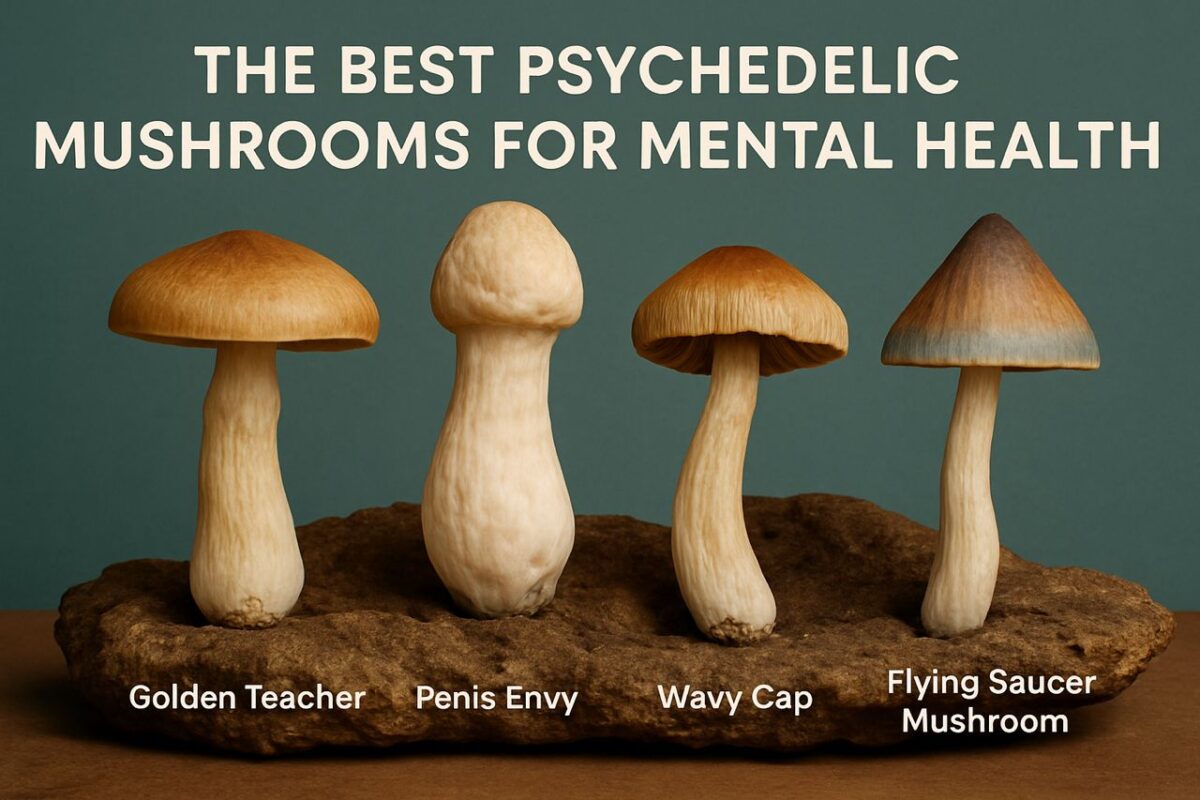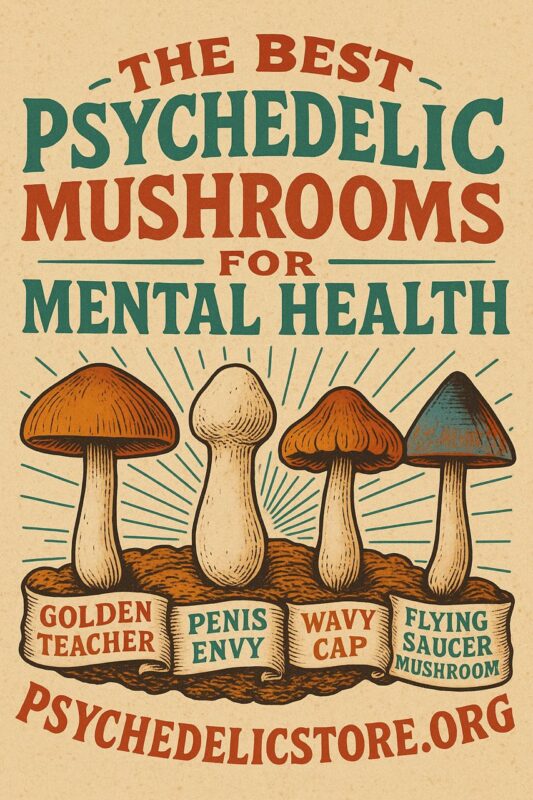The Best Psychedelic Mushrooms for Mental Health: A Comprehensive Guide

In recent years, psychedelic mushrooms have emerged as a powerful natural therapy for mental health conditions like depression, anxiety, PTSD, and even addiction. Backed by clinical research and supported by anecdotal success stories, certain strains of psilocybin mushrooms are gaining attention for their therapeutic potential.
In this article, we’ll explore the top psychedelic mushrooms for mental health, explain how they work, and review the current scientific evidence behind their benefits.
What Are Psychedelic Mushrooms?
Psychedelic mushrooms, also known as “magic mushrooms,” are fungi that contain psychoactive compounds—primarily psilocybin and psilocin. When ingested, psilocybin interacts with serotonin receptors in the brain, leading to altered perception, enhanced introspection, and—most importantly—potential healing of deep-rooted psychological issues.
Top Psychedelic Mushrooms for Mental Health

How Psychedelic Mushrooms Support Mental Health
Here’s how psilocybin mushrooms may benefit mental well-being:
• Neuroplasticity Boost: Psilocybin promotes the growth of new neural connections.
• Ego Dissolution: Helps users detach from harmful thought patterns and see problems from new angles.
• Emotional Catharsis: A safe space to release suppressed trauma or grief.
• Mindfulness & Presence: Increases awareness and connection to the present moment.
⸻
Scientific Backing: What the Research Says
Numerous studies have shown promising results:
• Johns Hopkins University: Found that psilocybin can significantly reduce symptoms of major depression for up to a year.
• Imperial College London: Demonstrated that psilocybin therapy led to a marked decrease in treatment-resistant depression symptoms.
• MAPS and Usona Institute: Ongoing studies are evaluating its potential for PTSD, anxiety disorders, and substance use disorders.
⸻
Safety & Legal Considerations
• Always use psychedelic mushrooms under supervision or with proper preparation.
• Microdosing can offer benefits without hallucinogenic effects.
• Legal status varies by location—check your local laws before use.
• Not recommended for individuals with a personal or family history of psychosis.
⸻
Final Thoughts
The field of psychedelic-assisted therapy is evolving rapidly, and psilocybin mushrooms are at the forefront of this mental health revolution. Whether you’re looking for relief from anxiety, depression, or trauma—or seeking deeper self-understanding—certain mushroom strains can offer profound healing when used responsibly.
Disclaimer: This post is for informational purposes only. Always consult with a medical professional or licensed therapist before beginning any form of psychedelic therapy.
FAQs
No, psilocybin is not physically addictive and often leads to decreased substance abuse behavior.
Yes. Studies have shown psilocybin can reduce anxiety, especially in cases related to terminal illness or chronic stress.
The primary difference lies in potency, duration, and intensity of the experience.
